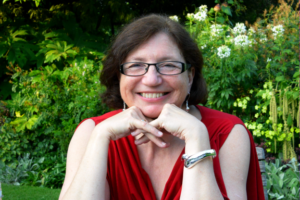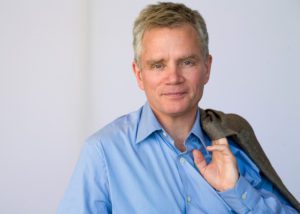Arts & Entertainment
TEDxBigSky Speakers: Vol. 2
Published
7 years agoon
Posted By
Outlaw Partners

Scott Wyatt
As a partner at NBBJ—the tech industry’s architecture firm of choice according to Wired and Popular Science magazines—Scott Wyatt oversees the talents, accomplishments and business strategies of the company’s corporate workplace design practice. Wyatt is recognized for highly functional, sophisticated designs that translate a client’s vision, purpose and culture into an elegant expression of interiors, structure and landscape. These designs foster inspiring environments for businesses, employees and the community at large. Wyatt has led the creation of new global headquarters for some of the world’s foremost corporations including Google, Boeing, Samsung, Amazon and Microsoft, among many others.
Explore Big Sky: Do you remember the moment you fell in love with architecture and design?
Scott Wyatt: I fell in love with New York in 1966 when I flew into JFK [airport’s] TWA terminal—I had never experienced such a powerfully expressive building—its glass and concrete form made me want to fly…it was incredibly moving. It was all of New York that inspired me toward a career in design—the streets, avenues and parks—some of the great places in the world.
EBS: Can you provide an example of a time when you witnessed the positive effects your innovative designs had on a company and its employees?
S.W.: The Reebok headquarters, south of Boston is one. [Founder and CEO] Paul Fireman’s vision was to construct a new headquarters that would be a key ingredient in turning his failing company back toward success. He believed that the right design could inspire better product design and higher company performance. We won that commission and the company had a spectacular turnaround in the two years after completion. Paul credited the new headquarters as the key to that turnaround.
EBS: The Big Sky community is currently undergoing a boom in development. Your projects are predominantly urban, but how might your design philosophy be applied to a small, remote area whose growth impinges on the natural surroundings that make it so desirable?
S.W.: It is very hard to get things right during boom times—I recommend looking at, and learning from, other successful communities. I am impressed with Boulder, Colorado’s green belt that limits sprawl. Consider higher density development, less suburban sprawl, preserving more untouched land. Denser communities can enhance social interaction and create more meaningful lives.
EBS: You talk about “biophilia”—the idea that humans innately seek connections with nature—a theory that has been applied to architecture and design. What kind of cues do you take from nature?
S.W.: Biomimicry, or form inspired by nature, can generate positive human responses, as well as innovative structural solutions. The “cue” for me is to do everything I can to conserve nature, as well as integrate it in all of my work.
EBS: Where do you see the future of architectural design heading?
S.W.: The future of design will be figuring out how we (animals and plants) can thrive on our planet with a population of 10 billion people. Most of us will be living in large, dense cities. They must be inspiring cities, not frightening, dangerous places. The difference is design. – Sarah Gianelli


Ann Herrmann-Nehdi
Ann Herrmann-Nehdi travels the world as a speaker, author and thought leader helping people, teams and organizations apply what we know about the brain to improve personal and business performance. As CEO of Herrmann International, she continues to build on the pioneering research of her father, whose studies revealed four patterns in how the brain perceives and processes information. This led to the development of a system to understand one’s preferred mode of thinking and maximize the use of one’s entire brain to improve performance and results.
Explore Big Sky: Why is it more important than ever for people to unlock and utilize their full brain potential?
Ann Herrmann-Nehdi: Our world today is so demanding of our brains—we are asking so much more of [them]—so the more we can unlock, the better our lives are.
EBS: How have you expanded on the brain research initiated in the 1970s by your father, Ned Herrmann, as head of management development for General Electric, to remain relevant in our rapidly changing society?
A.H.: There have been many “aha’s” along the way. One of the most impactful has been the understanding that our brains are malleable—that we can change our thinking and how we process and see the world. It is not a casual change, but I believe that once understood, it is a message of hope and gives us a roadmap for the learning we all need to pursue throughout our lives.
EBS: How can individuals apply “Whole Brain Thinking” concepts and tools—typically employed by businesses to encourage productivity, effectiveness and innovation—to their personal lives?
A.H.: Individuals can apply “Whole Brain Thinking” to almost every aspect of their lives: improving relationships at home with partners or family by better understanding how they may think differently; [and] making better decisions, solving problems more creatively or getting more out of their “brain time” every day—becoming more productive.
EBS: You lived abroad for 15 years, predominantly in France. Did that experience, and travel in general, have an effect on your ability to be a flexible thinker?
A.H.: Absolutely! It required [that] I learn to think and understand the world in very different ways. I studied several languages—Russian, French and even Arabic—and found that each time I was stepping into a mindset and view of the world that was unique and different. Travel is a great way to stretch your thinking, but you can also become more flexible by shifting your interests to an area that may be out of your natural comfort zone. For some people that might be art, for others writing code, mentoring someone or embracing a highly disciplined fitness plan.
EBS: What are some simple exercises people can practice throughout their day to get out of “rut thinking”?
A.H.: A great brain hack to break thinking patterns is to appeal to the brain’s natural appeal for novelty. I recommend getting up, ideally once every hour or so, and taking a brief walk outside to literally change your perspective. Research has shown that will shift your thinking and increase your creativity. – Sarah Gianelli
Lukas Nelson
It’s all but impossible to talk about Lukas Nelson without mentioning that that the 28-year-old musician is the son of legendary country rocker Willie Nelson. He and his band Promise of the Real have also toured as the back-up band for another living legend, Neil Young, but the “cowboy hippie surf rockers,” as they’ve dubbed their sound, have chops in their own right. In this interview with EBS, Nelson speaks about his father’s influence and what it means to fulfill “the promise of the real.”
Explore Big Sky: In previous interviews you’ve talked a lot about integrity and the importance of being true to yourself. Your band’s name “Promise of the Real”—a nod to lyrics in the Neil Young song “Walk On”—also suggests the importance of living with authenticity. What does that mean to you personally, and collectively as a band?
Lukas Nelson: My mom always used to say, “Who you are is what you do when no one’s looking.” Everybody makes mistakes … we’re constantly fighting our temptations and desires in life. The Promise of the Real, the band name, is like a mantra, really. We’re able to look at that, and say, no matter what we do, even if we make a decision that other people might not like, or even if we’re not proud of it, we own it. I don’t trust anybody who doesn’t recognize they’re a bit of a rascal. There’s a bit of a rascal in all of us.
EBS: How do these thoughts and beliefs come through in your music?
L.N.: It comes out in the writing, I imagine. I definitely don’t write as if I’m perfect; I write about my flaws, about the epiphanies I’ve had, [and] my perspective on life. Or I can try to put myself in somebody else’s shoes, and write from their perspective on life too. It’s all about perspective with art.
EBS: Many of your ballads—the heart wrenching “Sound of Your Memory,” for example—are filled with such longing and poetry that they provide hope that romanticism may not be dead after all. What are your thoughts about romanticism in this day and age?
L.N.: My dad’s a pretty romantic guy I guess. He’s definitely a poet. And he’s 83 years old now. I think I grew up with and [was] raised with an older sense of relationship to the world, and a sense of who I am. I feel like there is a sense of losing, really, the poetry of life with the saturation of social media. It’s not necessarily nostalgia because it still exists; it’s still out there, it just seems increasingly rare.
EBS: Why do you play music?
L.N.: I don’t know, I just do. I grew up with it. It feels like home. I first started because I wanted to be with Dad and he was always gone so I thought it was something I could do to keep us closer together. I started writing songs to make him proud. And then I fell in love with it myself. – Sarah Gianelli
Read more about the TEDxBigSky event and the rest of the speakers here.
The Outlaw Partners is a creative marketing, media and events company based in Big Sky, Montana.


Upcoming Events
april, 2024
Event Type :
All
All
Arts
Education
Music
Other
Sports
Event Details
Children turning 5 on or before 9/10/2024:
more
Event Details
Children turning 5 on or before
9/10/2024: Kindergarten
enrollment for the 2024-2025 school year can be completed by following the
registration process now.
Children
born on or after September 11, 2019: 4K enrollment is now open for
families that have a 4-year-old they would like to enroll in our program for
the 2023-2024 school year. Please complete the 4K Interest Form to
express your interest. Completing this form does not guarantee enrollment into
the 4K program. Enrollment is capped at twenty 4-year-olds currently
residing within Big Sky School District boundary full time and will be
determined by birth date in calendar order of those born on or after September
11, 2018. Interest form closes on May 30th.
Enrollment now is critical for fall preparations. Thank you!
Time
February 26 (Monday) - April 21 (Sunday)
Event Details
Saturday, March 23rd 6:00-8:00pm We will combine the heart-opening powers of cacao with the transcendental powers of breathwork and sound. Together, these practices will give us the opportunity for a deep
more
Event Details
Saturday, March 23rd 6:00-8:00pm
Time
March 23 (Saturday) 6:00 pm - April 23 (Tuesday) 8:00 pm
Location
Santosha Wellness Center
169 Snowy Mountain Circle
Event Details
We all are familiar with using a limited palette, but do you use one? Do you know how to use a
more
Event Details
We all are familiar with using a limited palette, but do you use one? Do you know how to use a limited palette to create different color combinations? Are you tired of carrying around 15-20 different tubes when you paint plein air? Have you ever wanted to create a certain “mood” in a painting but failed? Do you create a lot of mud? Do you struggle to achieve color harmony? All these problems are addressed in John’s workbook in clear and concise language!
Based on the bestselling “Limited Palatte, Unlimited Color” workbook written by John Pototschnik, the workshop is run by Maggie Shane and Annie McCoy, accomplished landscape (acrylic) and plein air (oil) artists,exhibitors at the Big Sky Artists’ Studio & Gallery and members of the Big Sky Artists Collective.
Each student will receive a copy of “Limited Palette, Unlimited Color” to keep and take home to continue your limited palette journey. We will show you how to use the color wheel and mix your own clean mixtures to successfully create a mood for your paintings.
Each day, we will create a different limited palette color chart and paint a version of a simple landscape using John’s directives. You will then be able to go home and paint more schemes using the book for guidance.
Workshop is open to painters (oil or acrylic) of any level although students must have some basic knowledge of the medium he or she uses. Students will be provided the book ($92 value), color wheel, value scale and canvas papers to complete the daily exercises.
Sundays, April 14, 21 and 28, 2024
Noon until 6PM.
$170.
Time
14 (Sunday) 12:00 pm - 28 (Sunday) 6:00 pm
Event Details
Come join us at Cowboy Coffee as we celebrate a fun night of drinks, games, and meeting others within the community. This event is from 6-8 and all are welcome
Event Details
Come join us at Cowboy Coffee as we celebrate a fun night of drinks, games, and meeting others within the community. This event is from 6-8 and all are welcome to come, if you don’t know who to bring come alone this is a great mixer event! This is an event hosted by Big Sky OUT as we work to provide queer safe spaces throughout the community.
Time
(Sunday) 6:00 pm - 8:00 pm
Location
Cowboy Coffee
25 Town Center Ave. Big Sky, MT 59716












